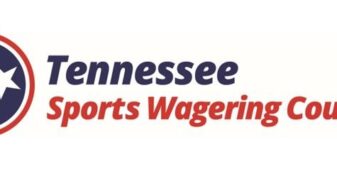The Tennessee Sports Wagering Council (SWC) has sent the Commodity Futures Trading Commission (CFTC) a letter asking the federal agency to “not permit” the offering of sports event contracts in the Volunteer State.
Illinois, Maryland, Montana, Nevada, New Jersey, and Ohio already sent cease-and-desist letters to trading platforms Kalshi and Robinhood. Michigan also launched investigations into such markets last week.
The SWC sent the letter, signed by Executive Director Mary Beth Thomas, to be included in the CFTC’s scheduled April 30 roundtable on the heated subject, which has entered judicial phases in Nevada and New Jersey.
In its two-page letter addressed to CFTC Acting Chair Caroline Pham, the Tennessee Sports Wagering Council cites 13 alleged violations of state laws and regulations from prediction markets.
The Tennessee Sports Gambling Act (Act) defines “Wager” as “a sum of money that is risked by a bettor on the unknown outcome of one or more sporting events, including, but not limited to, the form of fixed-odds betting, a future bet, live betting, a money line bet, pari-mutuel betting, parlay bet, pools, proposition bet, spread bet, or in any other form or manner as authorized by rule promulgated by the council.”
The SWC went on to state, “a person or entity that accepts a sum of money risked on the outcome of a sporting event without a valid license issued by the SWC violates the Act.”
In addition, the agency also cites the “many requirements of its sports betting Licensees in order to protect those who choose to wager in our state” that were enacted by Tennessee legislators.
Those include:
- Individuals under the age of 21 not being permitted to wager in Tennessee
- Lists of persons or categories ineligible to place wagers
- Responsible gambling requirements that include self-exclusion
- Prevents the use of credit cards and cryptocurrency to fund accounts
- Regulations that do not permit kiosks for establishing or accessing accounts
- Laws and regulations that contain specific anti-money laundering controls
- Wagering on injuries, penalties, or actions of college athletes along with in-game prop bets on college teams
The SWC says the “CFTC regulated entities” that currently offer sports events contracts are not compliant with these protections mandated by the Tennessee Legislature.
